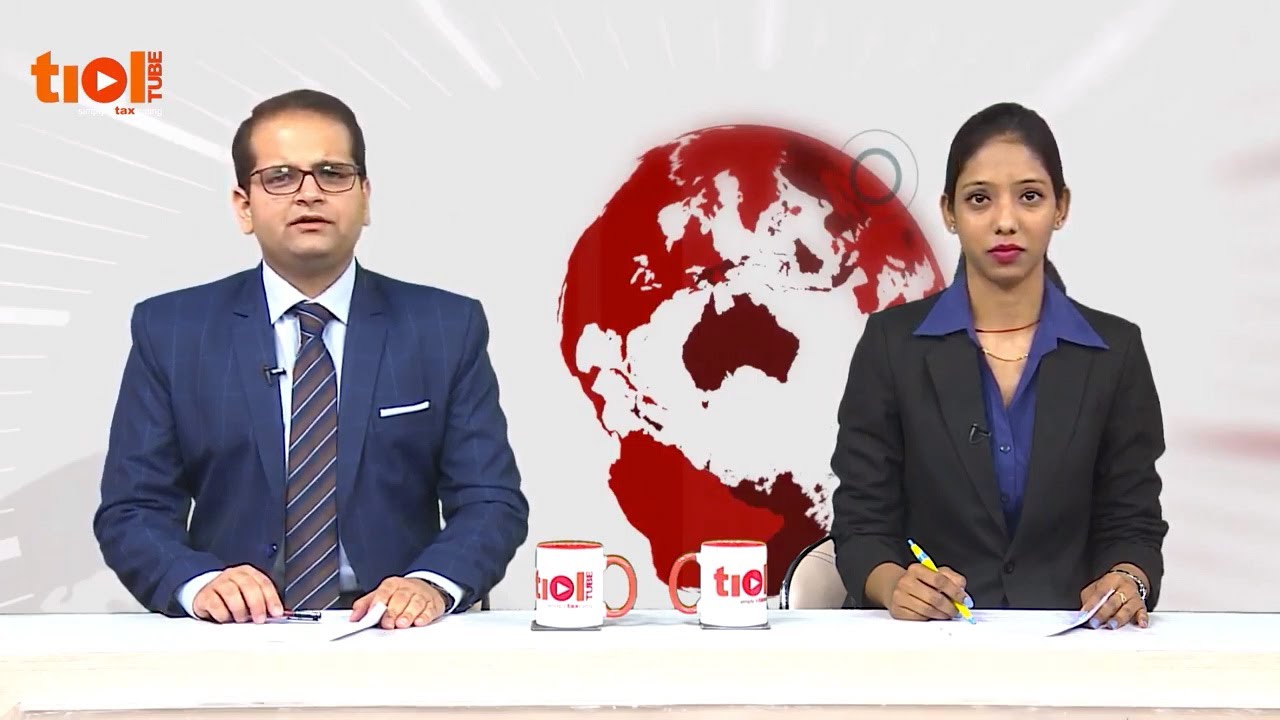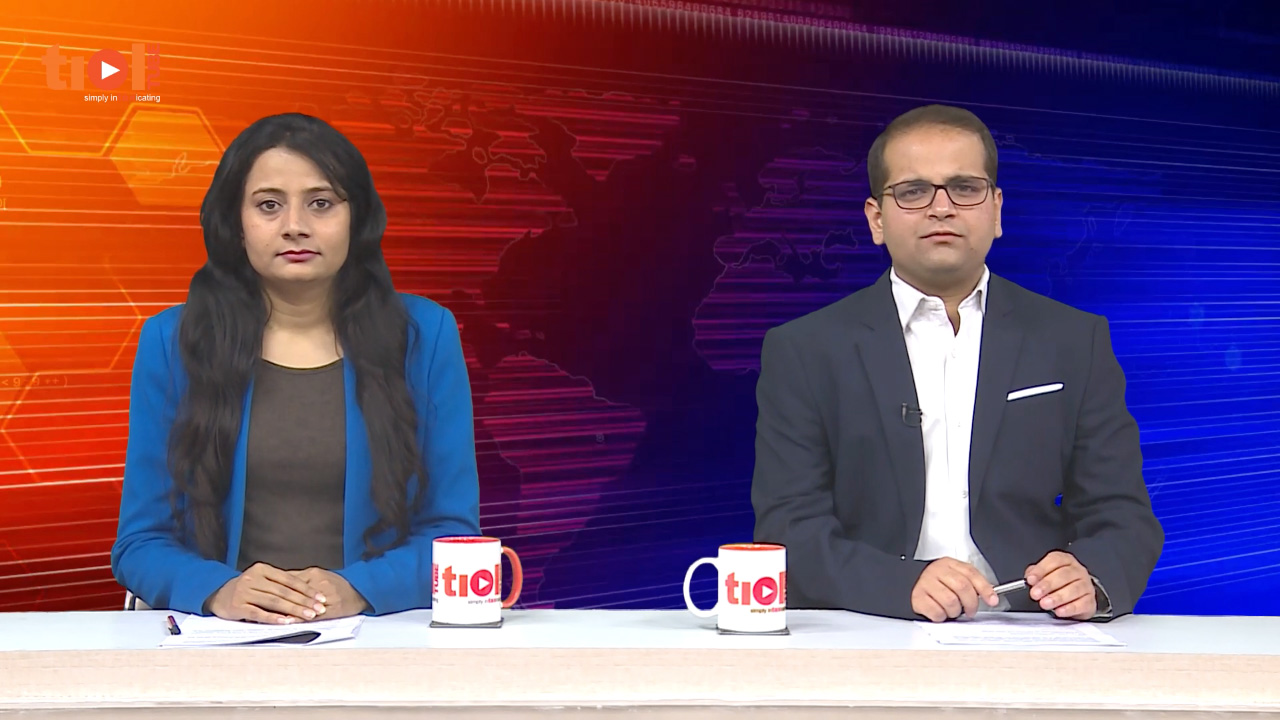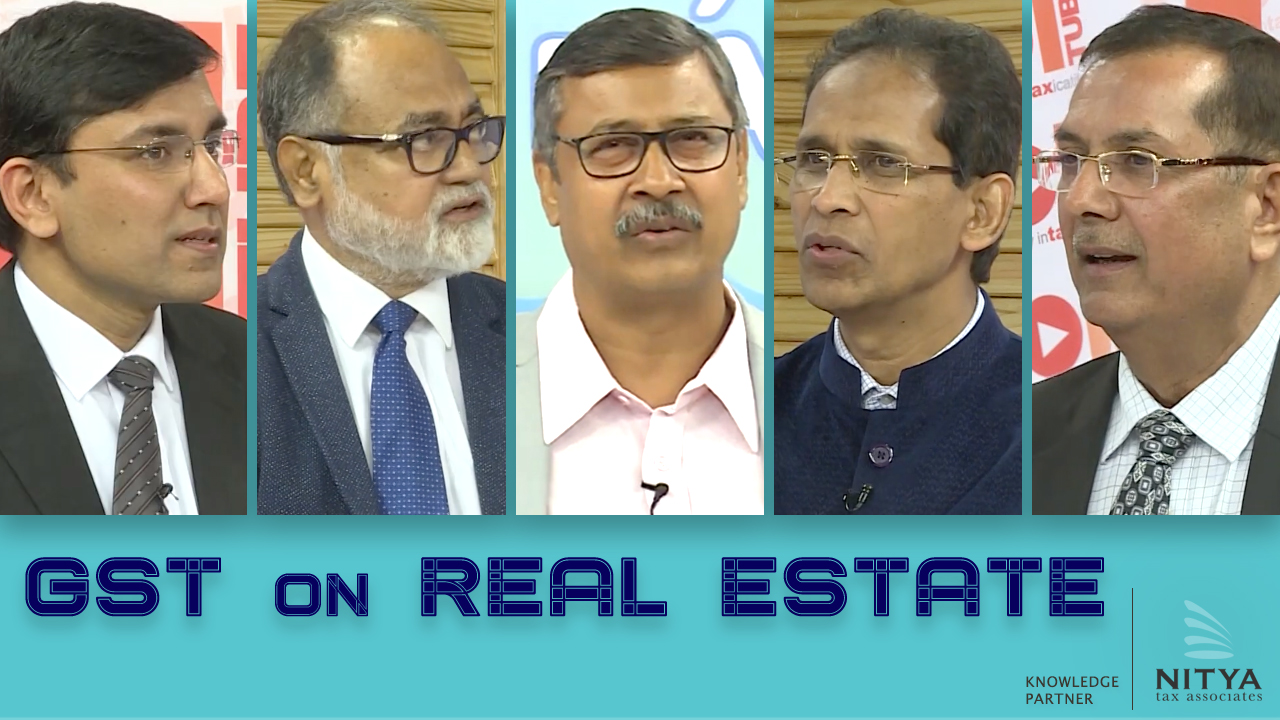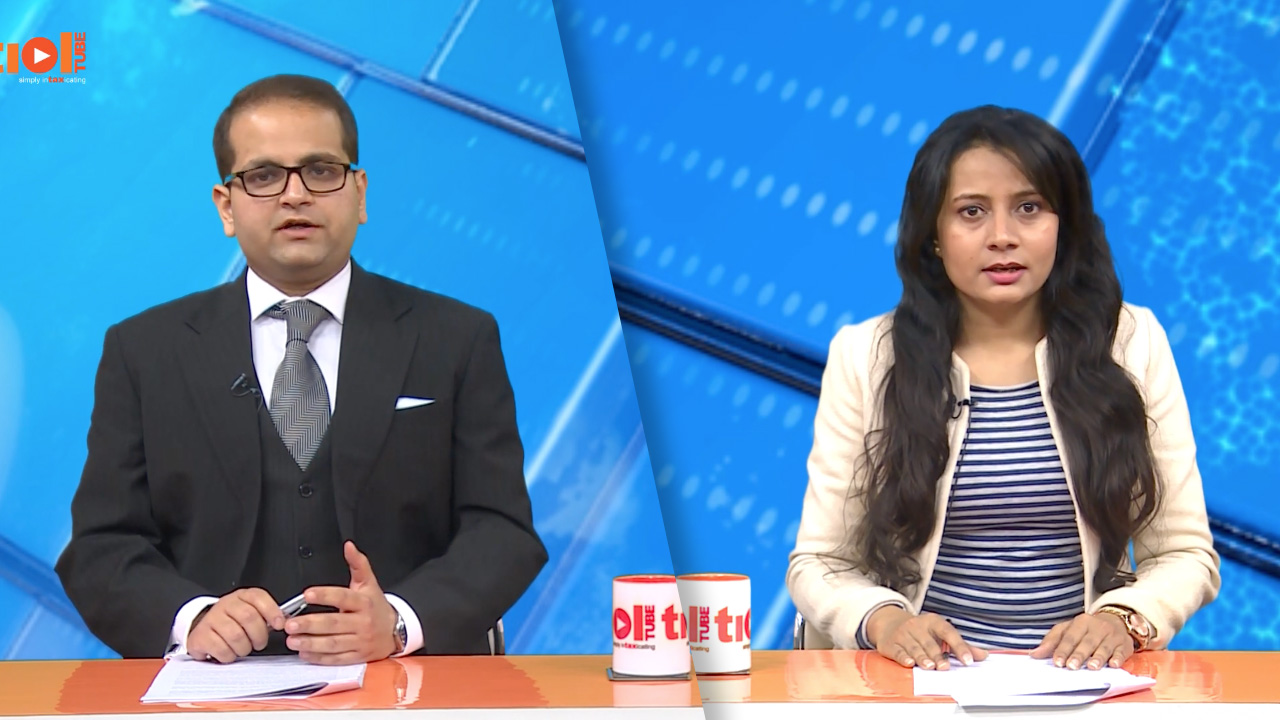|
SERVICE TAX
2019-TIOL-985-CESTAT-BANG
World Resorts Hotels Ltd Vs CCE & ST
ST - Appellants are not taxable as a Mandap Keeper in respect of corporate booking of rooms where conference hall is provided as a complimentary - However, wherever the appellants have only let out the said banquet/ conference halls for use and charge for the same, appropriate Service Tax is payable - Tribunal decision in Dukes Retreat Ltd v. CCE - 2017-TIOL-1624-CESTAT-MUM relied upon: CESTAT [para 5, 6]
ST- Membership fee - Club or Association Service - Issue no longer res integra - In view of the mutuality of interest and looking into the fact that the members of the club are providing services to themselves, no Service Tax is leviable on the same: CESTAT [para 5.1, 6]
ST- Services of beauty treatment and health and fitness centre, dry cleaning, internet etc. - case needs to be remanded back to the original authority for appreciation of evidence given by the appellants and to compute the Service Tax liability: CESTAT [para 5.2, 6]
ST - Appellants have allowed their premises to be utilized for the display and also providing sales personnel and packing materials and are offering facilities for branding of the products in a place outside the shop - This certainly amounts to promotion of business, therefore, charging of Service Tax under the 'BAS' category is tenable - appellant's arguments that the 'Business Auxiliary Service' rendered by them to M/s Himalaya Drug Company are only a renting of premises is not acceptable: CESTAT [para 5.3, 6]
ST - Limitation - Appellant had not declared all the categories of service provided by them and the taxable value thereof - Mere submission of Returns regularly is not enough for the Department to know the activities of the appellant , therefore, extended period is invokable and penalties are imposable: CESTAT [para 5.4, 6]
- Appeal partly allowed/Appeal partly remanded: BANGALORE CESTAT
2019-TIOL-979-CESTAT-MUM
City Reality And Development Pvt Ltd Vs CCE
ST- Appellant availed CENVAT credit of taxes paid on Input Service and capital goods for providing output service of Construction of complexes/multiplexes and Renting of Immovable Property Service - SCN issued alleging that credit is not admissible against the output service namely Renting of Immovable property on the ground that the mall is an immoveable property - demand confirmed of the CENVAT credit availed on inputs, input services and capital goods - appeal to CESTAT.
Held: Following judicial discipline, Bench cannot deviate from the stand taken by the Tribunal in the case of City Centre Mall Nashik P Ltd. - 2017-TIOL-4322-CESTAT-MUM ] and hence extends the benefit of CENVAT credit in respect of Input Service and Capital goods used for construction of mall, against renting of mall, on which service tax was paid - however, credit is inadmissible on Inputs used for construction of the mall - adjudicating authority to re-quantify the demand: CESTAT [para 5]
ST - CENVAT - As regards the fact that the appellant had shown the entire credit as opening balance of April 2011, the same is only a clerical error - even if the entry of CENVAT credit on individual services are made on the date of receipt or the consolidated amount is shown as opening balance of credit of April 2011, so long as there is no dispute about the amount, the credit cannot be denied: CESTAT [para 5]
-
Appeal partly allowed
: MUMBAI CESTAT
ST - CENVAT - Refund - Rule 5 of CCR, 2004 - Commissioner(A) partly allowed the appeal but rejected the claim of CENVAT credit qua 'Air Travel Agent Service', 'Banking and Financial Service', 'BAS' and 'General Insurance Service' on the ground that there is no nexus between the input services and output services - another allegation is availment of excess refund claim on account on non-reversal of erroneous credit admittedly availed - appeal to CESTAT.
Held : + Insurance Policy is taken by appellant in relation to the financial risks during the course of business that may arise upon the appointment of the employees as nominee Director/Alternate Director in the investee company and not for the personal consumption of the employee - in the case of the appellant's group entity, the adjudicating authority in respect of the refund claim for the period April to June 2016 had admitted that the 'General Insurance Service' procured by the claimant had direct nexus with the output services and hence eligible for refund - Credit is, therefore, admissible: CESTAT [para 5]
+ Air Travel Agent service are those services for booking air tickets for the traveling of its employees for official meetings with the clients at various locations - as these meetings are essential for business of the appellant, the same is to be considered as an Input service - Credit admissible: CESTAT [para 6]
+ Storage and Warehousing services are availed for storage of important business related information and the files are very essential for smooth and organized functioning of business - Credit admissible: CESTAT [para 7]
+ Banking and Financial Services had been availed by appellant for availing foreign exchange conversion services for its employees traveling abroad for conducting business, hence Input service - credit admissible: CESTAT [para 7]
+ BAS has been procured by appellant for repairing of the cellular phones of its employees who have been provided with cellular phone/mobile phone for checking emails/replying to queries of the clients - when employees leave the organization, the phones are to be surrendered to the appellant who send the same for formatting to avoid leakage of information - services are essential for business and hence are to be considered as input service: CESTAT [para 7]
+ Appellant has followed calculation as prescribed by notification 27/2012-CX(NT) and rule 5 ibid and has rightly claimed refund of the lowest amount for the relevant quarters viz. October to December 2014 and January to March 2015 and there is no question of excess credit/refund having been availed - Appeals allowed with consequential relief: CESTAT [para 10, 11, 12]
-
Appeals allowed
: MUMBAI CESTAT
ST - CENVAT - Rule 5 of CCR, 2004 - Refund - Adjudicating authority was supposed to first decide the issue of admissibility of Input Service by way of issue of SCN and carry out adjudication thereof and then only the refund could have been rejected on this point -in the present case, without carrying out the aforesaid adjudication process, straight away refund was rejected and this is incorrect and illegal - on this count itself, Revenue appeal is not sustainable - appeal dismissed: CESTAT [para 9]
ST - Refund - Rule 5 of CCR, 2004 - Net sum will be the CENVAT credit attributable to export only - no amount which was utilized for payment of service tax in respect of domestic provision of services is required to be reversed as per formula: CESTAT [para 9]
- Revenue appeal dismissed : MUMBAI CESTAT
CENTRAL EXCISE
CX - The assessee is engaged in manufacture of 'Piston Rings' and also availing the facility of CENVAT credit under CCR - The assessee and M/s. FMGIL are two group companies/sister units functioning in the common premises at Yelahanka with their Head Office located at New Delhi - The sales/marketing of products of assessee are done by FMGIL on behalf of assessee as per the Marketing Agency Agreement between the two units - For the said services rendered, FMGIL raises invoices charging 'Sole Selling Commission' under the category of BAS along with service tax from their service recipient i.e., the assessee - The Department entertained a view that assessee has wrongly taken CENVAT credit of service tax paid on 'Sole Selling Commission' on the basis of strength of invoices raised by FMGIL - As per Clause 3 of agreement entered into between the assessee and FMGIL, FMGIL promotes the sales of assessee by doing various activities including maintaining good relation with the customers, obtaining orders from them, providing consultation and advice and identifying prospective customers - Further, this issue is no more res integra and has been settled in favour of assessee in various decisions wherein it has been consistently held that sales commission falls under the definition of 'input service' - Further, it has been consistently held that Explanation added to Rule 2(l) of CCR inserted by Notfn 2/2016 are applicable retrospectively - Therefore, the impugned order is not sustainable in law: CESTAT
- Appeal allowed : BANGALORE CESTAT
CX - Edible goods viz. Preparation of Meat sold in unit containers bearing the brand name, logo and trade mark of McDonald's were classified by lower authorities under CSH 1601.10 and the demand of duty was confirmed along with interest and penalty - appeal to CESTAT.
Held : There is no dispute that the goods are classifiable under Chapter 16 - the dispute is whether the goods in question are put up in a unit container and bearing a brand name so as to classify them under heading 1601.10 or under heading 1601.90 because if the goods are held to be classifiable under heading 1601.10 then they will be subject to Central Excise duty - reasoning of Commissioner(A) does not appear to be sound inasmuch as he has failed to take note of the submission that the goods are being supplied to consumer for consumption in restaurant and in stray cases the same may have been carried by the customer as per his option for consumption later on - as per the Commissioner(A) if some brand name is embossed on the said tableware/crockery then all the non-vegetarian preparations served in the restaurants would merit classification under CTH 1601.10 and shall be levied to duty - such a view neither will be logical or sustainable as it is against the basic principle of central excise levy which is never on the retail consumption of goods -the basic purpose of the phrase 'put up in unit containers' is that for wholesale clearance from the manufacturer the goods have been packed in unit container - Bench is unable to agree with the reasoning of the Commissioner(A) as mode and manner of service in a restaurant cannot determine the leviability to duty - plea of the AR that since the earlier order of the Bench on same issue remanded the matter to the original adjudicating authority, the present case also be remanded so that both the matters can be decided simultaneously is unacceptable because the earlier order has been passed on 20.07.2017 - 2017-TIOL-3211-CESTAT-MUM ] and even after a lapse of one year the Revenue has not been able to adjudicate the matter and, therefore, by remanding the present case the matter would be delayed further and to what extent is not known; that the matter is more than a decade old; that the issue is a question of law and has been settled by earlier orders of the Tribunal and does not require any fresh verification or consideration of facts: - impugned order is set aside and Appeal is allowed: CESTAT [para 5.2, 5.4, 5.6, 6]
- Appeal allowed : MUMBAI CESTAT
CX - Appellant had claimed benefit of exemption under notification 64/95-CX and, therefore, opted for payment of amount as provided u/r 6(3) of CCR, 2004 -however, due to inadvertence, instead of paying six per cent of value of exempted goods, they paid seven percent - upon realization of mistake, they took re-credit of the excess payment made - taking such suo motu credit was disputed by the department and it was opined that the appellant assessee ought to have filed a refund application u/s 11B of the CEA, 1944 -appeal to CESTAT.
Held: Fact is not under dispute that the appellant had inadvertently reversed the amount of 7% in the CENVAT account instead of the prescribed amount of 6% - process of reversal of excess CENVAT credit and taking of re-credit of the said excess amount involves only accounting/book adjustment and there was no outlow of fund towards this accounting adjustment - provisions of s.11B of the CEA will not be applicable to the case on hand -Madras High Court decision in ICMC Corporation Ltd. - 2014-TIOL-121-HC-MAD-CX held that process involving availment of suo motu CENVAT credit of the amount reversed earlier is a technical book adjustment and in absence of outflow of funds from assessee, filing of refund claim u/s 11B of the Act does not arise - following the same, impugned order set aside and appeal allowed: CESTAT [para 6, 7]
- Appeal allowed : MUMBAI CESTAT
CUSTOMS
2019-TIOL-973-CESTAT-MUM
Remi Sales And Engineering Ltd Vs CC
Cus - Appellant imported Top Loader Refrigerator i.e. Professional Mobile Refrigeration System used by Blood bank for movement of blood - appellant filed BE and for the purpose of CVD arrived at the AV based on transaction value of the goods - Revenue insisted that the CVD be arrived by using the MRP/RSP of the goods - since the goods were urgently required, the appellant paid the customs duty as well as CVD as directed and appealed before Commissioner(A) who held against them - appeal to CESTAT.
Held: Considering the nature and use of the impugned goods, it cannot be said that the same are intended for retail sale - Goods in question are sold by appellant to hospital and the same is sale to the institutional customer only - Commissioner(A) has held that an importer cannot be said to be a manufacturer or packer and hence not eligible for exemption in terms of rule 2A of the Packaged Commodity Rules, 1977 - since the importer is the person responsible to comply with the PCR, 1977, he has been treated at par with the manufacturer of goods - in such case, since importer is eligible for exemption from complying with the provisions of RSP, the goods are liable for duty u/s 4 of the CEA, 1944 and not u/s 4A( RSP basis) - impugned order is set aside and appeal is allowed with consequential reliefs: CESTAT [para 3, 5.1]
- Appeal allowed : MUMBAI CESTAT
Cus - Exemption - Notification 21/2002-Cus, Sr. no. 217, List no. 12 - Insofar as exemption notification is concerned, there is no condition of re-export under the same - the only condition stipulated is that the imported goods should be certified by the Director General of Hydrocarbons as being required for Petroleum operations under the New Exploration Policy - as the said condition has been met, the reason for the demand that the goods were not re-exported within the stipulated time is extraneous to the notification - impugned order set aside and appeal allowed with consequential relief: CESTAT [para 4]
- Appeal allowed : MUMBAI CESTAT
2019-TIOL-776-HC-MAD-CUS + Case Story
CC Vs Symrise Pvt Ltd
Cus - The assessee-company filed a bill of entry for clearance of automatic chemicals imported & on which duty had been paid - This duty was assessed on the amount covered by 9 invoices - However, the imported goods were covered under eight invoices and the ninth invoice was covered in a separate bill of entry which was permitted to be cleared on payment of duty - The assessee claimed that on the same invoice, it paid duty twice and the balance amount is to be refunded - The assessee approached the jurisdictional Assistant Commissioner of Customs (Refund), who advised the assessee to get the assessment order pertaining to such bill of entry reviewed, through appeal to the Commr.(A) - The assessee filed a review application before the Assessing Officer in this regard - The same was dismissed on grounds that the refund claim was not maintainable since the assessee did not challenge the assessment order - The assessee approached the Commr.(A) who held that the error could not be rectified unless it had been committed by the Department - The Tribunal later held that any clerical error or arithmetical error could be rectified suo motu under Section 154 of the Act and refund could be allowed to importer as a consequence of correction of clerical error under Section 154 of the Act, when the importer had not filed refund claim under Section 27 of the Act - Hence the Revenue's appeal.
Held - Section 154 of the Act gives an impression that clerical or arithmetical error occurring in orders passed by the Government Board or any officers of that Department, or errors arising from such order due to accidental slip or omission alone can be corrected - However, as far as orders passed under the Customs Act are concerned, the power of correct the same vests only with the authorities - Section 154 does not restrict the exercise of power when a clerical or arithmetic mistake is pointed out by the importer or exporter for reasons attributable to such party - Hence the view taken by the FAA would restrict the powers u/s 154, which is impermissible - Hence in the instant case, the assessee cannot correct the order - But then as an invoice not forming part of the bill of entry was inadvertently included and assessed to tax, the same classifies as an error apparent on face of the order - Hence the simple remedy would have been to verify the bill of entry, which would have saved all the time spent in the present litigation - Hence the Tribunal's findings that the assessee is entitled to refund of Excise duty, are quashed - The matter is remanded to the AO to pass appropriate orders: HC (Para 4-8,13,15,16)
- Revenue's appeal partly allowed: MADRAS HIGH COURT |









